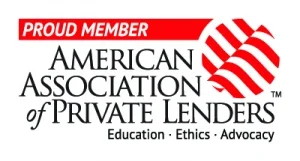Welcome to the world of hard money lending! This guide is designed to walk you through the essentials of becoming a hard money lender, a role that merges the dynamic worlds of real estate and finance. Whether you’re looking to diversify your investment portfolio or step into a new financial venture, understanding the nuances of hard money lending is crucial. We’ll cover everything from the basics of this unique lending approach to practical steps for starting and growing your lending business, ensuring you’re well-equipped to embark on this exciting journey.
Understanding Hard Money Lending
Hard money lending serves a specific niche in the real estate market, primarily focusing on short-term, asset-based loans. Unlike traditional lenders who assess a borrower’s creditworthiness, hard money lenders prioritize the value and potential of the real estate asset. This makes hard money loans ideal for borrowers needing quick funding for investment opportunities, such as property flippers or developers.
Getting Started
To embark on a career as a hard money lender, a strong foundation in real estate and finance is crucial. Familiarity with property valuation, market trends, and legal aspects of real estate transactions can significantly contribute to your success. Additionally, understanding the legal requirements, including state and federal lending laws, is essential to ensure your lending practices are compliant and ethical.
Financial Requirements
Starting as a hard money lender requires significant capital. This capital can come from personal savings, retirement funds, or pooling resources with other investors. Some lenders also raise funds through private investors or partnerships, offering them a stake in the lending business.
Building a Lending Strategy
Developing a clear lending strategy is vital. Decide on the types of properties you will finance—residential, commercial, or specific niches like fix-and-flips. Setting competitive yet profitable interest rates and terms is also crucial. Establish a thorough due diligence process to assess each loan’s risk, including property appraisals and borrower creditworthiness.
Networking and Building Relationships
Success in hard money lending heavily relies on your network. Building relationships with real estate agents, investors, attorneys, and other lenders can provide you with valuable leads and partnerships. Joining real estate investment groups and attending industry events can expand your network.
Marketing Your Services
A strong marketing strategy can set you apart in the competitive lending market. Develop an online presence through a professional website, social media, and digital marketing campaigns. Traditional marketing methods like networking events, word-of-mouth referrals, and partnerships with real estate firms can also be effective.
Legal Considerations and Compliance
Working with legal professionals knowledgeable in real estate law is essential. They can help you draft loan documents, ensure compliance with lending regulations, and guide you through foreclosure processes if necessary. Staying updated with lending laws and regulations is crucial to protect your business and your clients.
Managing Loans and Risk
Effective loan management includes monitoring payments, handling defaults, and managing foreclosures if they arise. Diversifying your loan portfolio across different property types and locations can help mitigate risk. It’s also important to have contingency plans for loans that don’t perform as expected.
Growth and Expansion
As your lending business stabilizes, consider strategies for growth. This could include expanding into new real estate markets, offering different types of lending services, or increasing your capital base through partnerships or investor networks. Continuous learning and adaptation to market changes are key to sustainable growth.
Conclusion
Becoming a hard money lender offers an exciting opportunity to be part of the dynamic world of real estate finance. It requires not just financial resources, but also a deep understanding of the market, strategic planning, and a commitment to ethical and legal practices. With the right approach and dedication, hard money lending can be a rewarding and profitable venture.


